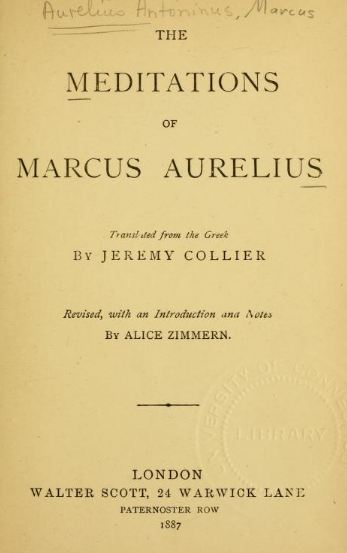‘The Meditations’ PDF Quick download link is given at the bottom of this article. You can see the PDF demo, size of the PDF, page numbers, and direct download Free PDF of ‘Meditations Of Marcus Aurelius’ using the download button.
Meditations Of Marcus Aurelius PDF Free Download

Meditation Guide
Marcus Aurelius is said to have been fond of quoting Plato’s dictum, and those who wrote about him rarely refrained from applying it to Marcus himself.
And indeed, if we look for Plato’s material philosopher-king we can hardly do better than Marcus, ruler of the Roman Empire for nearly two decades and author of the Immortal Meditations.
Yet the title is one that Marcus himself would certainly have disapproved of. He never considered himself a philosopher.
He claimed to be, at best, a diligent student and a very imperfect practitioner of the philosophy developed by others.
As for the imperial throne, it came almost by accident. When Marcus Annius Verus was born in AD 121, bystanders may have predicted a prestigious career in the Senate or imperial administration.
They could hardly have guessed that he was destined for the royal purple, or that they had seen the Bronze Horseman alone in their mind’s eye.
Whose raised hand welcomes us from Rome’s Capitoline Hill for two thousand years.
Marcus came from a distinguished family. Theoretically, the year of his birth coincided with the second term of his grandfather’s consulship,
Rome’s highest office, however, is now largely of ceremonial importance. And it was his grandfather who raised him, as his father died when he was very young.
Marcus refers to the character of his father in Meditations as he remembered or heard about it from others, but his knowledge may have been more from stories than from actual recollection.
Of the remainder of his childhood and early adolescence we know little beyond carefully gleaned information.
His biography in the so-called Historia Augusta (a curious and unreliable work of the late 4th century).
- The example of my grandfather Verus gave me a good temper, not a tendency to anger.
By remembering my father’s character, I learned to be both humble and manly.
As for my mother, she taught me to respect religion, to be generous and open-hearted, and not only to refrain from mistreating anyone, not even to think about it. By him. Similarly, I grew up in a simple, cheap way of living, which is very different from the usual luxuries of the rich.
I must thank my great-grandfather that I did not go to any public school, but had good masters at home and learned to spend liberally on such things.
From my governor I learned not to join the green or blue faction on the race-ground, nor to support Parmularius or Scutarius at the Gladiator’s show.
They also taught me to put my hand to business from time to time, to endure hardships and fatigue, and to throw the necessities of nature within a small circle; That I should not meddle in other people’s work, nor be comfortable giving credit to informers.
On behalf of Diognatus, to abstain from vain works, not to fall into the hypocrisy of magicians and soothsayers, who pretend that they can subdue evil spirits, and by the power of magic do strange things; Neither keep quails for the pit, nor crave for any such thing.
This Diognatus taught me to behave freely and frankly with others and to apply myself to philosophy. He also taught me Baccius, Tandasis and Marcianus.
He also inspired me to better myself by writing dialogues when I was a boy; I was determined to prefer a sofa covered with skins to a royal bed; and introduced me to the other rigors of Grecian discipline.
| Author | Marcus Aurelius |
| Language | English |
| Pages | 256 |
| PDF Size | 11 MB |
| Category | Health |
| Source | archive |
The Meditations Of Marcus Aurelius PDF Free Download
